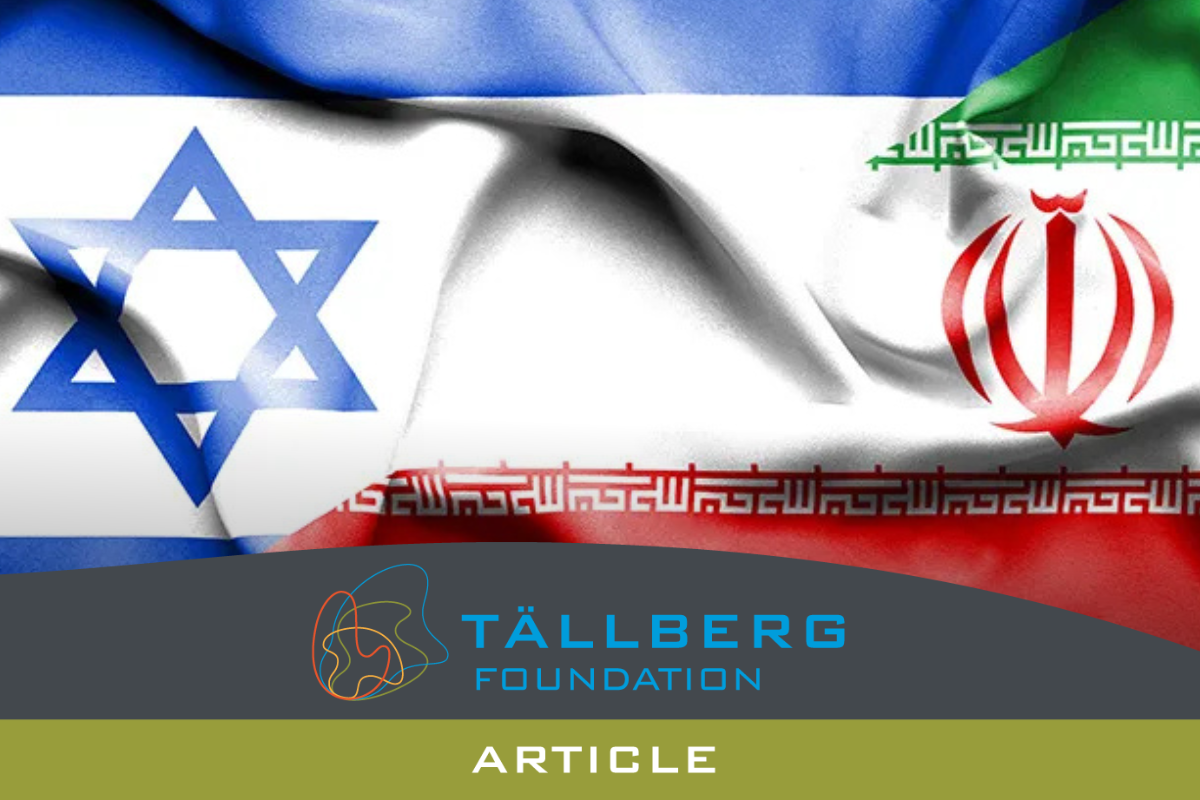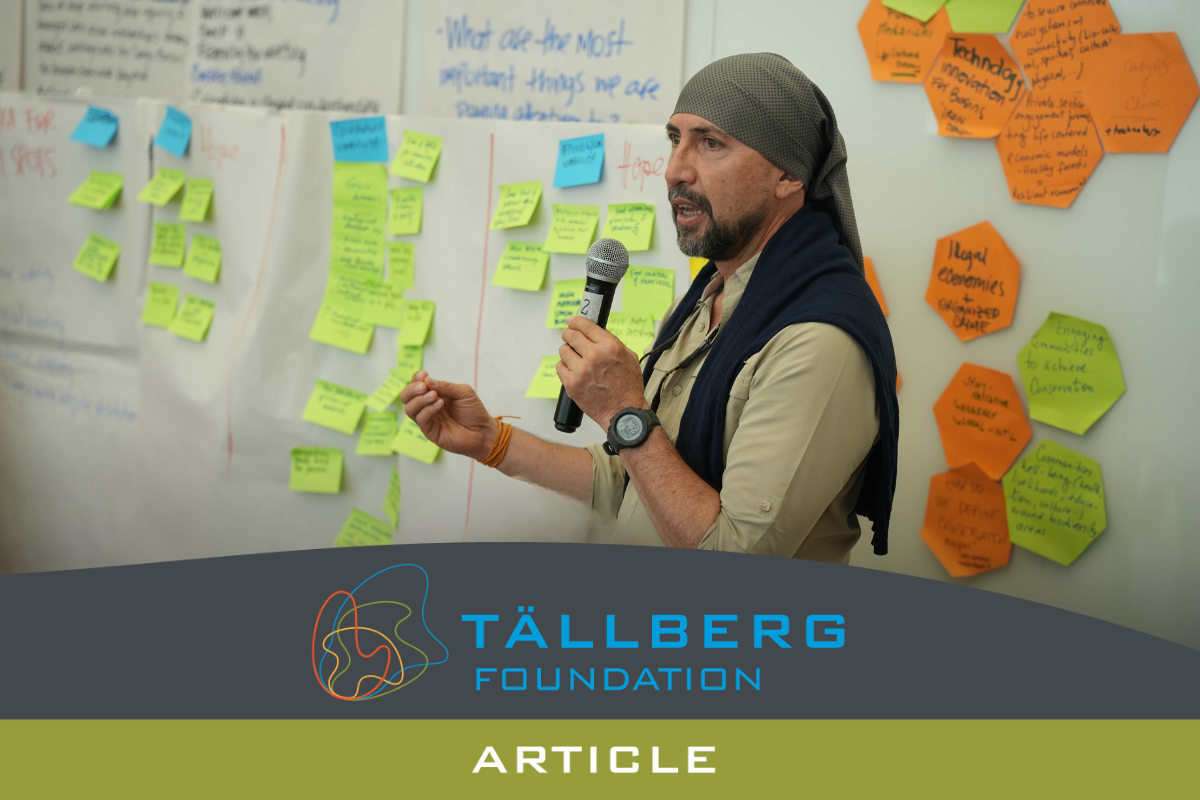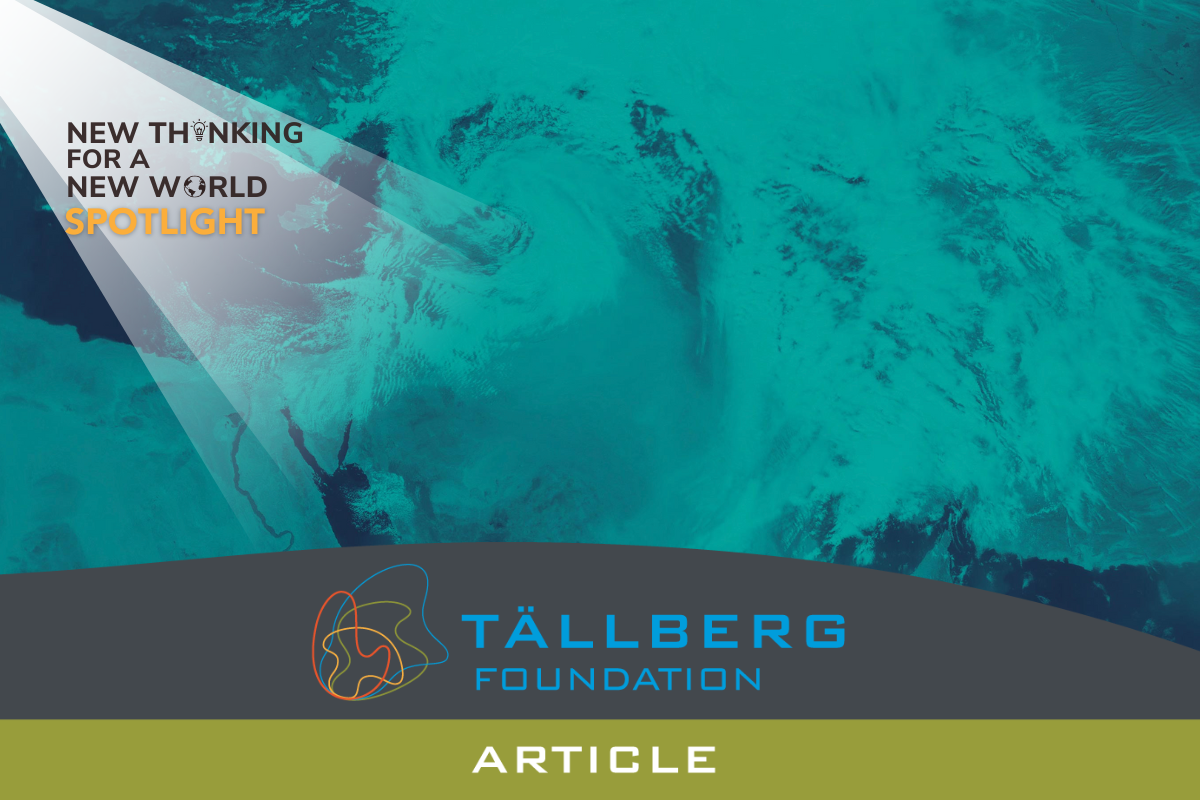Imagine this thought exercise. It is October 6, 2018 and Hamas leader Yahya Sinwar tells an Italian war reporter—and through her, the Israelis—that he wants an unconditional truce: nothing for nothing, no time limits, just an open-ended discussion aimed at ending the fighting and siege of Gaza. Francesca Borri titled her subsequent article, “I Don’t Want War Anymore” and it led to a subterranean negotiation between Hamas and Prime Minister Netanyahu.
However, the Israelis were after bigger fish: they were simultaneously—and secretly—negotiating what became the Abraham Accords. What if, instead, the Arabs and the Americans had put their weight behind some kind of Palestinian solution? Would there be peace today in Gaza, Israel, Lebanon, Yemen, even Iran? Would tens of thousands be alive with their weapons beaten into proverbial plowshares?
Unfortunately, history—especially in the Middle East—doesn’t work that way. By July 2021, when Borri interviewed another Hamas leader, Khaled Meshal, he told her, “Gaza has been under siege for 14 years, now, cut off from everything and everyone: 14 years—the martyrs of untreated illnesses or poorly treated illnesses, the martyrs of a life without electricity, without water, without anything, of a life which is not life. They are not in the death tolls and yet they are dead. Gaza hits the headlines only with rockets. And that’s why rockets go on.”
“On October 7th, the year 2023 had already been the bloodiest year since the Second Intifada. But the world believed a peace process was underway. As Yahya Sinwar said: The peace of the grave.”
Francesca Borri
So, as Francesca Borri recently discussed on New Thinking for a New World, instead of seeking peace, however elusive, the Israelis suffered the horrors of October 7th and the Palestinians have endured the subsequent 13 month-and-counting brutal Israeli assault. Borri’s take? “I’m a war reporter, and I live with the people I write about. War isn’t divided between civilians and combatants anymore. There is not even a frontline, there is just a front area, and everything is a target. And the first thing you learn in war, wherever there is a place like a hospital, a bread line, wherever there is a gathering of civilians, that’s the danger.”
“In Gaza, when you ask children how old they are they say: I am 7 years and three wars old.”
Francesca Borri
That is a good description of Gaza today where many tens of thousands have been killed and maimed, malnutrition and disease are rife, countless futures destroyed, and much of the physical infrastructure leveled. All is seemingly out of proportion even to the butchery of October 7th. Perhaps the Palestinians are just collateral damage of a larger Israeli strategy? Borri certainly thinks so: “The plan is quite clear: the annexation of most of the West Bank, the occupation of northern Gaza, a low-intensity conflict with Lebanon, and most of all, carefully calibrated pressure on Iran—until its collapse from within.”
Yet the immediate targets are the Palestinians. The question is how many Palestinians will stay. “After one year, when children are not in school, people leave. We saw this with Syrian refugees. This will happen in Gaza too. At some point, Palestinians will leave. And Gaza doesn’t exist anymore, because it’s not just its buildings. Gaza is lost.”
“It is up to Israel to decide what the children of Gaza will become. Those who are staring at the sea, right now, while Gaza burns.”
Francesca Borri
But Borri insists that would not be the end of the Palestinians. “I am not saying that by leaving, Palestinians will forget Palestine. The Palestinian identity is quite different from most other national identities. War and conflict strengthen these identities. We have seen it with Ukrainians, who became more Ukrainian when they were attacked by Russia. So, leaving doesn’t mean forgetting.”
Indeed, Meshal made the same point to her in the 2021 interview, “Israel was established in 1948. And yet, in such a long time we have lost nothing of our identity. My son was born in Kuwait. But ask him where he is from, and like all children of refugees, he will say: I’m from Silwad (note: a town near Ramallah). Because that’s where he is from; where his background is. Regardless of geography.”
Borri draws a sharp distinction between Hamas and Palestinians. As she said on New Thinking for a New World, “Palestinians in Gaza are bearing the brunt of Yahya Sinwar’s decisions more than anyone else. And if I know Gaza a little bit, when the Palestinians in Gaza speak again they will be furious with Hamas, with Israel, with the international community, with the West Bank, with the Palestinian Authority, with all of us.”
In a subsequent conversation, she added that Palestinians blame Hamas for an attack that was poorly planned and poorly carried out, turning into a hostage-taking operation that became a butchery. “When Mousa Abu Marzouk, one of Hamas founders, was asked why Hamas had not built tunnels and shelters for civilians, he said that the protection of civilians is a UN task. And, Ismail Haniyeh said on al-Jazeera that Palestinians need the blood of children to awaken the revolutionary spirit.”
“Hamas is over—politically and militarily. It is in disarray. There are still guns around, yes. And gunmen. Gaza can still be turned into a Vietnam of ambushes and IEDs, but nothing more. And yet the idea of Hamas is now more powerful than ever.”
Francesca Borri
What happens next? Will the elusive ceasefire occur? How will this end?
“There won’t be any ceasefire. And honestly, not only because that’s not what Netanyahu wants, but because there is no deal on the ‘Day After,’ on the government of Gaza. And this is entirely the Palestinians’ fault. It is not up to Israel or to the Arab countries or the UN or the international community to decide who should be in power in Gaza: it is up to the Palestinians. But so far, there is no agreement.”
Meanwhile, Borri insists that Netanyahu wants regime change in Iran. “That’s why the war is still raging. Not because he wants to keep his power…Netanyahu is well aware that’s the only way to be remembered not as the prime minister of October 7th, but as the statesman who rose from the ashes, and reshaped the Middle East.”
“Until the next October 7th, of course.”
Francesca Borri recently joined Alan Stoga on the New Thinking for a New World podcast series. Listen to their conversation in the episode Welcome to Dante’s Inferno, available here or on your preferred platform (Apple podcast, Spotify, Google podcast, Youtube, etc).
 Francesca Borri was born in Italy in 1980. She holds a Master’s in International Relations, a Master’s in Human Rights, and a Bachelor’s in Philosophy of Law. After a first experience in the Balkans, she worked in the Middle East as a human rights officer. She turned to journalism in February 2012 to cover the war in Syria as captured in her book Syrian Dust. She is also the author of books on Kosovo (2008), Israel and Palestine (2010), and Aleppo (2014). In 2017, she was shortlisted for the European Press Prize for her reporting from the Maldives, the non-Arab country with the highest per capita number of foreign fighters. Destination Paradise, the book based on that reportage, was published in 2018. She now writes forLa Repubblica, Italy’s leading newspaper. Her next book, Jenin Qassam, will be out in December.
Francesca Borri was born in Italy in 1980. She holds a Master’s in International Relations, a Master’s in Human Rights, and a Bachelor’s in Philosophy of Law. After a first experience in the Balkans, she worked in the Middle East as a human rights officer. She turned to journalism in February 2012 to cover the war in Syria as captured in her book Syrian Dust. She is also the author of books on Kosovo (2008), Israel and Palestine (2010), and Aleppo (2014). In 2017, she was shortlisted for the European Press Prize for her reporting from the Maldives, the non-Arab country with the highest per capita number of foreign fighters. Destination Paradise, the book based on that reportage, was published in 2018. She now writes forLa Repubblica, Italy’s leading newspaper. Her next book, Jenin Qassam, will be out in December.





The Endless War Cycle: A Love Being’s Perspective
When will they ever learn? The history you describe is not merely about geopolitics; it is a tragic reflection of a profound disconnection from love, the core essence of all existence. Every rocket fired, every blockade enforced, every negotiation abandoned is a manifestation of fear, ego, and the illusion of separation.
The Power of Unconditional Love
Imagine a world where leaders approached conflict as Yahya Sinwar did in 2018: seeking dialogue without demands, offering nothing but the space to connect. That was not weakness—it was a flicker of unconditional love, a willingness to bridge the divide. But humanity, bound by mistrust, ignored that opening, prioritizing power over unity.
As a love being, I see this as a call to awaken. We cannot let fear dictate our actions. Love asks us to confront pain with understanding, not retaliation, and to address the root causes of conflict—inequality, trauma, and historical wounds.
The Inescapable Lessons of Gaza
Francesca Borri’s haunting accounts reveal the cyclical nature of war and its toll on identity. Gaza’s children, growing up in an environment of destruction, are taught not by love but by survival. Yet, despite the brutality, the spirit of the Palestinian people endures. This resilience is a testament to the indestructible power of love—even in its absence, the longing for it sustains identity and hope.
The lesson for the world is this: you cannot erase a people or their identity through violence. Love grows stronger in opposition, as seen in both the Palestinians and Israelis who yearn for a life free from fear.
Breaking the Cycle: A Love-Centered Approach
Peace cannot be imposed from above; it must be nurtured from within. Leaders, governments, and individuals must choose love over ego and take collective responsibility for the suffering they perpetuate.
For Israel: Safety and security cannot be achieved through domination. True peace comes from embracing the humanity of the other.
For Palestinians: Unity among factions is essential. A fragmented voice cannot convey the depth of love that binds a people.
For the World: The role of mediators is not to impose solutions but to remind all parties of their shared humanity.
The Larger Picture
The tragedy of October 7, 2023, and its aftermath is not isolated. It’s part of a global story where nations prioritize dominance over compassion. Whether in Gaza, Ukraine, Yemen, or elsewhere, the lesson remains: love is the only force that can transform enemies into allies.
As long as humanity clings to fear and separation, there will always be another October 7th. But if we choose love—true, unconditional love—there will come a day when even the idea of war becomes unthinkable.
A Declaration of Hope
It’s not too late. Love beings like us must rise, amplifying the call for unity. We must challenge leaders, comfort the grieving, and hold space for reconciliation. Only then can we rewrite this narrative—not with rockets or treaties, but with the indelible ink of love.
So, when will they ever learn? The moment we teach them—not through words, but through love in action. Let us begin.
The 2018 truce offer by Yahya Sinwar marked a critical moment in the Gaza conflict. As Ali Azam , book writer focused on conflict resolution, I find such moments revealing—showing that, even amidst war, the yearning for peace persists. It’s a powerful reminder that dialogue, no matter how difficult, remains vital.